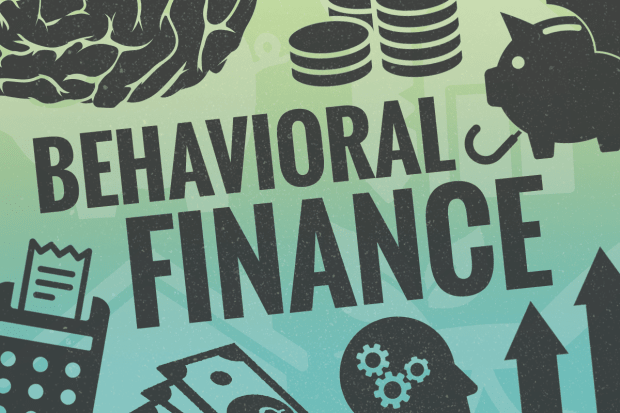
How Behavioral Finance Can Help You Invest Wisely?
Jan 01, 2024 By Triston Martin
Behavioural finance provides investors interested in studying how emotions and biases affect stock prices with compelling explanations and descriptions of how stock prices are concerned. When seen from this vantage point, It's not hard to envisage the stock market as a person: It may act impulsively one day and then make apologies the next; It experiences mood swings (and price fluctuations) that may range from grouchy to cheerful on the fly. However, can the study of human behaviour help us to understand financial matters better? Are there any actionable techniques that may be gleaned from the analysis of market sentiment? Those who study behavioural finance argue that this might be the case.
Some Behavioral Finance Findings
 A branch of behavioural economics called "behavioural finance" contends that humans are not nearly as rational when making financial decisions like investing as orthodox economic theory would have us believe. The argument that psychosocial processes impact stock market swings runs counter to well-established theories that promote the assumption that financial markets are effective. For instance, proponents of the efficient market hypothesis (EMH) assert that the market reacts swiftly to any new information that affects a company's value. Future price changes will therefore be random because all relevant information has already been discounted into current prices. The efficient market theory is challenging to accept for anyone who lived through the Internet bubble and subsequent meltdown.
A branch of behavioural economics called "behavioural finance" contends that humans are not nearly as rational when making financial decisions like investing as orthodox economic theory would have us believe. The argument that psychosocial processes impact stock market swings runs counter to well-established theories that promote the assumption that financial markets are effective. For instance, proponents of the efficient market hypothesis (EMH) assert that the market reacts swiftly to any new information that affects a company's value. Future price changes will therefore be random because all relevant information has already been discounted into current prices. The efficient market theory is challenging to accept for anyone who lived through the Internet bubble and subsequent meltdown.
To suggest that financial health influences emotional and physical health, and vice versa, is an understatement. It just occurs circularly. People release catecholamine-related substances when they are under financial stress. People have probably heard of substances like epinephrine and similar substances that can set your entire body on fire. Thus, that has an impact on both your mental wellness and your capacity for thought. It impacts your physical health, exhausts you, keeps you up at night, and makes you finished. Once you cannot sleep, you turn to negative actions to cope.
The Value of Losses vs the Importance of Gains
 One example of an experiment is giving someone the option of choosing between a guaranteed $50 or the chance to win $100 or nothing by tossing a coin. The individual will probably take home the sure thing. On the other hand, present the options of 1) a guaranteed loss of $50 or 2) a loss of $100 or nothing based on the outcome of a coin toss. The person will probably choose the second choice and flip the coin rather than accept a $50 loss. Loss aversion is the term for this. Even if there is an equal chance that the coin will land on one side or the other in every situation, many will choose to toss it to avoid losing $50, even though doing so could result in up to $100. That's because people frequently prioritize the possibility of recouping a loss over the likelihood of a more significant gain.
One example of an experiment is giving someone the option of choosing between a guaranteed $50 or the chance to win $100 or nothing by tossing a coin. The individual will probably take home the sure thing. On the other hand, present the options of 1) a guaranteed loss of $50 or 2) a loss of $100 or nothing based on the outcome of a coin toss. The person will probably choose the second choice and flip the coin rather than accept a $50 loss. Loss aversion is the term for this. Even if there is an equal chance that the coin will land on one side or the other in every situation, many will choose to toss it to avoid losing $50, even though doing so could result in up to $100. That's because people frequently prioritize the possibility of recouping a loss over the likelihood of a more significant gain.
For investors, minimizing their losses should, above all else, be a top goal. Just consider the experience of Nortel Networks stockholders who saw the price of their shares drop from over $100 per share in the early 2000s to less than $2 a share a few years later. Investors frequently retain stocks instead to endure the anguish of suffering a loss, regardless of how low the price dips. They do this because they believe that the price will eventually rise.
Self-vs. the Herd
People's propensity for copying others is explained by herd instinct. Investors experience the anxiety that others are more knowledgeable or possess more information while the market is moving up or down. Investors thus experience a solid urge to imitate others' actions. According to behavioural finance research, investors frequently attach too much value to conclusions drawn from single sources or tiny data samples. Investors often ascribe expertise rather than luck to analysts who choose winning stocks, for example. Contrarily, convictions are hard to change. For instance, a popular idea among investors in the late 1990s was that any abrupt decline in the market represents a purchasing opportunity. This "buy the dip" philosophy is still widely held. Investors frequently make snap decisions with too much confidence and choose to focus on a single "telling" feature over the more obvious average.
The Usability of Behavioral Finance
Let us inquire about the usability of behavioural finance and whether this research will aid traders in outperforming the market. After all, logical flaws ought to offer plenty of lucrative possibilities for clever investors. However, in reality, very few value investors, if any, use behavioural concepts to identify which bargain companies truly provide returns that are regularly above average. Behavioural finance research continues to have a more significant impact on academia than on real-world money management. Although theories highlight several flaws in rationality, the subject does not provide many profitable solutions that capitalize on market manias... But he was unable to predict when the bubble would burst. Similar to how they could not predict when the market would bottom out following the 2007–2008 financial crises, today's behaviourists cannot indicate when the market has reached its peak.
-
 Savings Sep 24, 2024
Savings Sep 24, 2024How Unemployment Fraud Affects Job Seekers and Employers Alike
This article explores the implications of unemployment fraud on individuals, businesses, and the economy, highlighting strategies for prevention and reinforcing system integrity.
-
 Know-how May 18, 2024
Know-how May 18, 2024Should You Get A Safeco Car Insurance? A Comprehensive Review
Safeco car insurance covers collisions, comprehensive liability, and more. You can get a great deal by reviewing the pros and cons before purchasing.
-
 Investment Dec 07, 2023
Investment Dec 07, 2023Effects on the Markets of Budget Shortfalls and Surpluses
Reduced income the next year is one possible outcome of a budget deficit due to increased borrowing, greater interest payments, and a lack of reinvestment. A surplus in the budget is the polar opposite of a deficit.
-
 Savings Aug 31, 2024
Savings Aug 31, 202412 Effective Strategies to Save Energy and Reduce Costs
This article outlines twelve effective strategies for reducing energy consumption and costs, while promoting sustainability in everyday life.